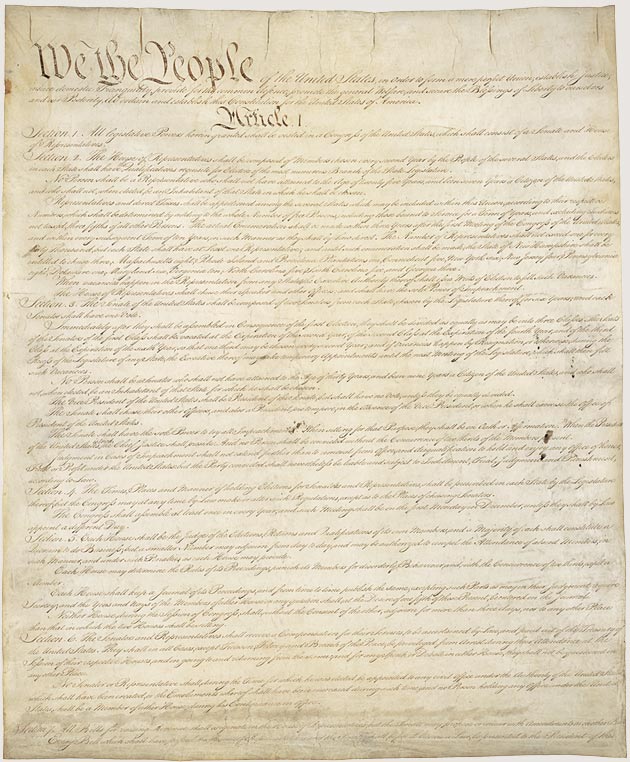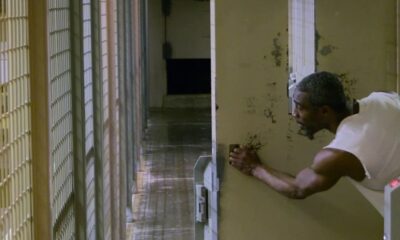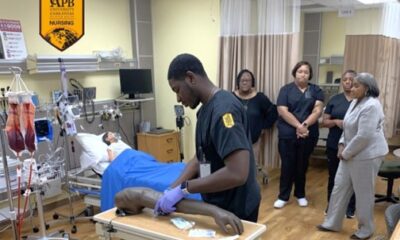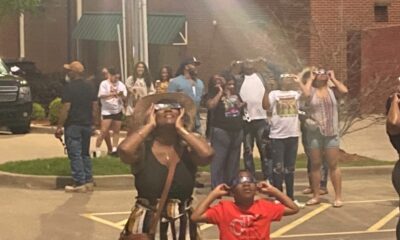Culture
How Hip-Hop Artists Educate Black America on the U.S. Constitution

The next time you listen to a rapper pay close attention to the wordplay because there may be a lesson about the United States Constitution in the rhyme.
“I believe that hip-hop artists from the jump have been critiquing the U.S. Constitution in a way that makes sense,” said Professor Andre Douglas Pond Cummings during a speech at the University of Arkansas at Pine Bluff, one of the nation’s oldest Historically Black Colleges and Universities.
Cummings addressed the student body during UAPB’s Constitution Day program, using his Constitutional Law expertise and his work as an Associate Professor of Law at the William H. Bowen School of Law and a graduate of Howard University’s Law School. The California-born lawyer and author outlined how “slavery is embedded in the Constitution” and the way the document has been interpreted to oppress Black Americans.
“I love this Constitution, but I don’t worship it,” Cummings stated.
Growing Up Near South Central
As a teenager growing up in south Los Angeles in an area that “straddled the hood,” Cummings recalled having friends who were “surfers” as well as friends who were “African American gangsters.” According to Cummings, both groups of teenagers used marijuana.
“My white surfer friends were never stopped by police,” Cummings shared. It was a different story, though, for his friends who were Black. He remembered being stopped one night and ordered out of his car along with the three Black teenagers riding with him and forced to stretch out on the ground while police removed the seats from his car. It was the unfair application of the law that forged his determination to become an attorney.
“If you just think for a moment, if those surfers got thrown down and locked up, what would those parents do,” queried Cummings. “They would call the mayor…the police chief would be fired.”
The Trauma of Neighbors
Cummings cited the trauma of the inequities prevalent in law enforcement, making the case with rapper Meek Mill’s song, “Trauma.”
Uh, my mama used to
pray that she’d see me in Yale
It’s
f***** up she gotta see me in jail
On
the visit with Lil Papi, it hurt even though I seemed to be well
They
got a smoker with a key to my cell, damn
And
even worst, my judge black don’t wanna see me do well
It’s
either that or black people for sale
Cummings explained, “I don’t know many 13, 14, 15-year-old kids who are reading the Constitution, but they’re listening to Meek. And, he’s teaching them that the 13th Amendment, in my opinion, is jacked up. And, he’s suggesting that adverse childhood experiences that impact children are harming their ability to be future, productive citizens in the country.”
The 13th Amendment to the Constitution outlawed slavery, unless the person is imprisoned. Cummings and other critics of that portion of the Amendment suggest it is a significant factor in the mass incarceration of Black men.
According to Cummings, Rapper J. Cole took on the Fourth Amendment and the issue of illegal search and seizure with his hit, “Neighbors.”
Wait, I think police is at the door
Okay,
the neighbors think I’m sellin’ dope
Hm,
I guess the neighbors think I’m sellin’ dope sellin’ dope
The
neighbors think I’m, neighbors think I’m
I
think the neighbors think I’m sellin’ dope (Don’t follow me, don’t follow me)
I
guess the neighbors think I’m sellin’ dope, sellin’ dope
“He’s talking about racial profiling, he’s talking about stereotypes, he’s talking about probable cause,” Cummings remarked. “And he’s essentially saying, ‘It doesn’t matter if your house is on a lake or the President jams your tape…you’re Black.’”
ACTION ITEMS
Cummings urged students to “stay woke” and get involved, working to harness the “political willpower” to change the Constitution. He pointed to sections of the Constitution that are mostly irrelevant but remain in the document: Article I, Section 2 of the Constitution refers to Black Americans as 3/5ths of a person and the Fugitive Slave Clause contained in Article IV, Section 2 would permit a slave owner to pursue an escaped slave who fled to a free state for a return to enslavement.
University Instructor, Felicia Cooper, listened to Cummings speech with the same rapt attention that students did.
“It was very interesting to hear and see a Caucasian discuss hip-hop and the Constitution,” she said. “It afforded us an opportunity to relate it to the past and present and to gain insight on what are some of the solutions for the future. It is important for us to be woke!”
As his speech ended, Cummings emphasized, “I don’t want you to be depressed about this, I want you to recognize that hip-hop in my opinion offers a powerful critique of the state…and, we can change the way the state does its business.”

-

 Featured12 months ago
Featured12 months agoArkansas Sheriff Who Approved Netflix Series Says He Stayed ‘In His Lane’
-

 HBCUS12 months ago
HBCUS12 months agoSenator Boozman Delivers $15 Million to Construct New UAPB Nursing Building
-

 News12 months ago
News12 months agoMillions In the Path of The Total Solar Eclipse Witnessed Highly Anticipated Celestial Display
-

 Featured9 months ago
Featured9 months agoCalifornia Is the First State to Create A Public Alert for Missing Black Youth
-

 Featured9 months ago
Featured9 months agoAfrican American Leaders Stay the Course Amid Calls for President Biden To Bow Out of Race
-

 Featured9 months ago
Featured9 months agoThe Debate Fallout Lands on Both Candidates









